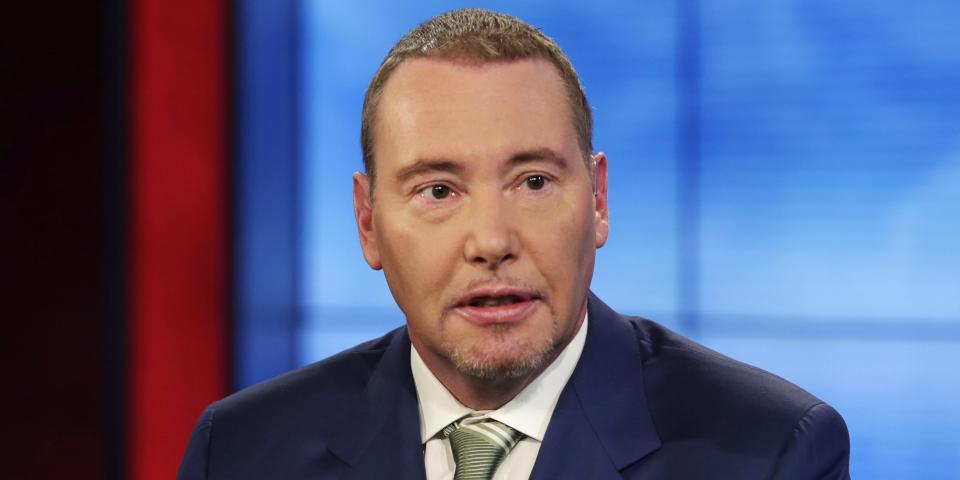'Bond King' Jeffrey Gundlach tells investors to prepare for recession - and warns against trying to prevent a downturn

Jeffrey Gundlach warned of a looming recession and advised investors to take precautions.
The "Bond King" said stocks could drop, loan defaults might soar, and inflation may prove stubborn.
The billionaire investor and DoubleLine Capital boss advised against trying to prevent the downturn.
Jeffrey Gundlach has raised the alarm on an impending US recession, warning investors they need to prepare for it regardless of how severe it ends up being.
Gundlach — whose nickname is the "Bond King" — is a billionaire investor and the boss of DoubleLine Capital. He warned stocks may come under pressure, loan defaults might surge, and inflation could prove stubborn in a recent Yahoo Finance interview.
Moreover, he cautioned that attempting to forestall an economic slump can result in a far more devastating downturn in the future.
Here are Gundlach's 8 best quotes, lightly edited for length and clarity:
1. "It doesn't matter if it's a soft landing or a hard landing. As long as we're going into recession, you have to have a certain degree of protection. It won't matter if it's raining a half an inch an hour, or raining two inches an hour — in either case you need an umbrella."
2. "We could see some real interesting, painful outcomes that are coming in the next recession, whether it's very severe or not." (Gundlach warned that tighter lending standards, a weakening economy, and low credit quality could lead to a spike in loan defaults.)
3. "In spite of the fact that inflation is going to be reluctant to come down, I just think the shape of the yield curve is the best indicator of the forward economy." (Gundlach said the curve, which plots the yields on bonds of different maturities, was "absolutely" predicting a recession.)
4. "The one indicator that is the slam dunk on recession is if the unemployment rate crosses its three-year moving average. We're pretty far away from that, but if that happens it suggests you're in more of a hard-landing type of recession."
5. "The Fed themselves predicted in December the unemployment rate was going to end this year up about 100 basis points at 4.6%. Historically, when you get more than a 50-basis-point rise in the unemployment rate, you've never avoided a recession. So the Fed themselves are maybe, in a backhanded way, predicting a recession themselves."
6. "What a lot of amateur investors don't understand is that markets often change direction at year end. It's not because of some strange astrological phenomenon, it's because of flows. It's not surprising that the Nasdaq, which was the dog of 2022, turned into the hero of 2023." (Gundlach explained that when there are big moves in markets, many investors rejig their portfolios and engage in tax loss selling at the end of the year.)
7. "I think the stock market is in a protracted bear market. When you have rising interest rates against these valuations, it's very negative for the stock market."
8. "When you have this sort of attempt to never have a significant downturn in the economy — Fed to the rescue, zero interest rates, quantitative easing — what you're trying to do is avoid any type of hard landing ever. But that type of activity violates Gundlach's rule of of financial physics, that the frequency of problems times the severity of problems equals a constant. So the more you try to reduce the severity of problems, you're going to end up ultimately having a very high severity problem."
Read the original article on Business Insider

 Yahoo Finance
Yahoo Finance 